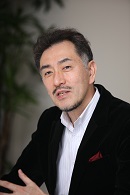

Greeting (2016)
“Genome editing” defines our ability to freely modify genetic information, and has benefitted immensely from the development of artificial and programmable DNA-cleaving enzymes, or nucleases. The impact of nuclease technology goes far beyond enabling basic research, with extensive utility in the industrial sector and eventually medicine. Ranging from the modification of microorganisms, plants and animals for beneficial traits, to human disease treatment by gene correction, the possibilities of genome editing are boundless.

For many researchers whose model organisms could not previously be modified at the genome level, programmable nuclease technology is like a ‘dream come true’. I myself, through my focus on developing first- and second-generation nuclease systems (ZFN and TALEN), continue to realize the growing importance of genome editing technologies. In addition, development of the CRISPR-Cas9 system in 2012 broke down the barrier for nuclease design, making it accessible to all researchers. Genome editing has become an essential technology in life sciences research within just a few years’ time.
The rapid development of genome editing has led to something of a revolution in the field of life science. As such, the increasing number of researchers involved necessitates the exchange of practical information among us. In 2012 we launched the Genome Editing Consortium, with the intent to foster the development of new technologies and enable future cooperation by disseminating the latest domestic and global information on genome editing. However, it became clear in this growing field that issues related to ethics and standardization would also require our attention.
It is from these recent developments that we proposed to form an official Society to meet the requirements of our fellow researchers and financial supporters, and thus the “Japanese Society for Genome Editing” was established in early 2016. In the spirit of collaboration, we welcome participation of all researchers, both from Japan and overseas, to join the Society, and look forward to your collegiate support.
Takashi Yamamoto
Professor, Graduate School of Science, Hiroshima University
April, 2016
English Translation
Knut Woltjen
Associate Professor, Center for iPS Cell Research and Application, Kyoto University
